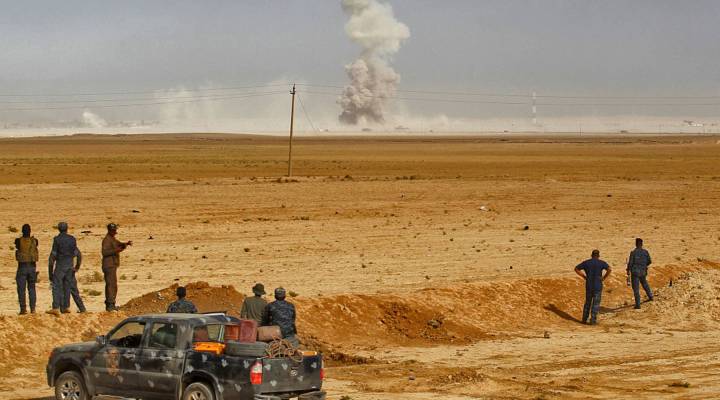
Liberating Mosul from ISIS is just a first step

A major offensive to capture the Northern Iraqi City of Mosul from the Islamic State is underway and will likely intensify over the coming days. Iraq’s second largest city has been under ISIS control for the past two years. The U.S. Treasury Department said the Islamic State pulled in about $1 billion last year — half from oil and gas revenue and more than a third from taxing and extorting people in places it controls — places like Mosul.
Bilal Wahab, The Washington Institute for Near East Policy fellow, said Mosul has been a cash cow for ISIS.
“So when we look at ISIS Inc. at large, not just ISIS, Iraq, freeing Mosul from ISIS will actually translate into a tremendous economic hit to ISIS finances,” he said.
That’s part of the strategy of the U.S.-led coalition. ISIS would need to rebuild its financing if it loses Mosul, Iraq’s government, for its part, would have to rebuild roads, sanitation and power facilities, among other infrastructure projects.
“There’s going to be a huge rebuilding job to do and the price tag could easily go into the billions,” said Robert Ford, senior fellow at the Middle East Institute. “With low oil prices worldwide, the Iraqi government will be really challenged to come up with money.”
Another challenge: the UN estimates as many as 200,000 people may be forced to flee the fighting in Mosul. Some have speculated that’s a conservative number. All the while, aid agencies are already scrambling to cope with a global refugee crisis.
Joe Nye, professor at the Harvard Kennedy School of Government, said he’s not holding out hope for the fair treatment of Mosul refugees.
“There has not been adequate treatment of refugees in the Middle East,” he said. “And so, if you ask, ‘will this all turn out neatly?’ it would be remarkable in terms of what has happened to the rest of the region.”
So, what can, or should, the U.S. do?
Stuart W. Bowen Jr., former U.S. special inspector general for Iraq reconstruction, said to avoid wasting taxpayer dollars (as happened in the past), the American government needs to think strategically before making any moves.
“You have to secure a zone before you can begin to rebuild it,” he said. “I think that too much money was lost during the Iraq reconstruction because of rebuilding that occurred in very unstable zones.”
Bowen said recapturing and rebuilding Mosul won’t wipe out ISIS, but could be a step in that direction.
There’s a lot happening in the world. Through it all, Marketplace is here for you.
You rely on Marketplace to break down the world’s events and tell you how it affects you in a fact-based, approachable way. We rely on your financial support to keep making that possible.
Your donation today powers the independent journalism that you rely on. For just $5/month, you can help sustain Marketplace so we can keep reporting on the things that matter to you.












